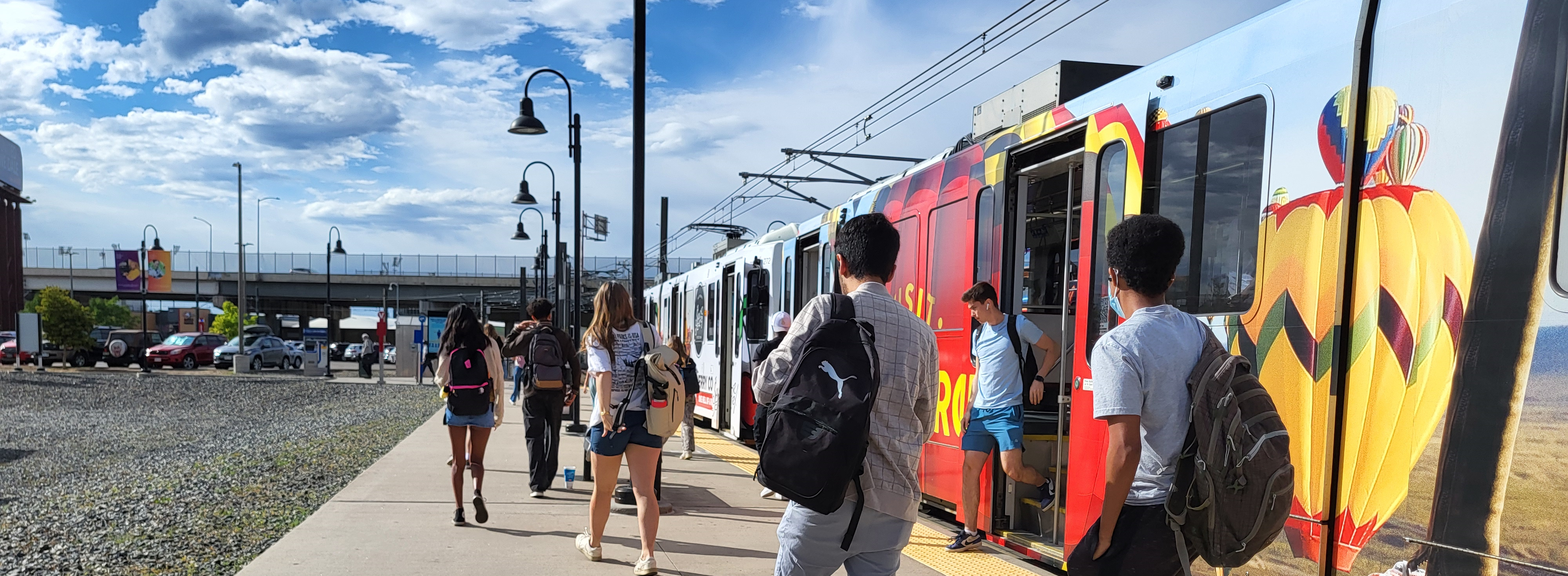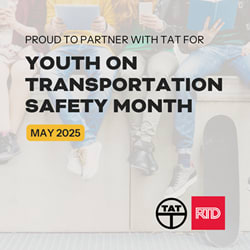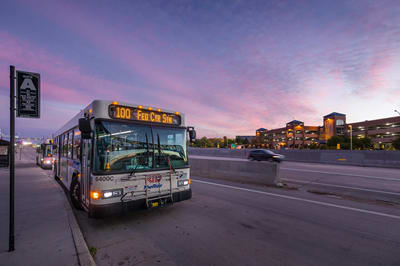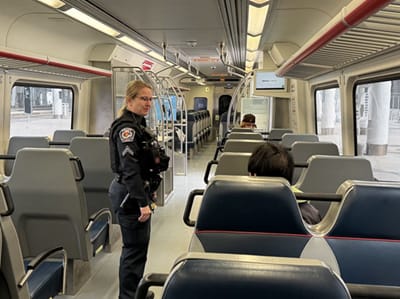
Youth on Transportation Safety Month

Learn the signs. Take action. Make a difference.
As part of Youth on Transportation Safety Month, RTD is launching a Human Trafficking Awareness Campaign throughout May to educate customers, employees and community members about the warning signs of trafficking and how to safely report suspicious activity.
Human trafficking is a serious and often hidden crime that affects people worldwide, including in Colorado. It involves severe exploitation for labor or commercial sex through force, fraud or coercion. Victims may be forced to work long hours for little or no pay, and traffickers often take their identification, making it difficult to access transportation. When survivors seek to escape, a bus, train or transit center may be the first place they turn for safety. As the region’s public transit provider, RTD is uniquely positioned to help identify and disrupt trafficking.
RTD is partnering with Truckers Against Trafficking (TAT) and the Denver Anti-Trafficking Alliance (DATA) to raise awareness and encourage action through a campaign that reaches people where they are—on the bus, at the station and online.

What you'll see in May
- On buses and at transit hubs: Interior cards, exterior signs, posters and digital signage with messages encouraging customers to join the effort to stop human trafficking and how to find resources.
- On social media: Educational content and resources all month long. Follow us @RideRTD.
- In your community: RTD team members will share information at local events and distribute
printed materials.


To help prevent trafficking in the Denver metro area, RTD Transit Police (RTD-PD) regularly trains its officers to recognize, identify and report human trafficking. RTD-PD officers are certified in investigating human trafficking. Many members of the agency’s law enforcement recently participated in a training webinar sponsored by the American Public Transportation Association (APTA) about anti-trafficking response initiatives. The RTD-PD also partnered with the Denver Police Department and FBI to conduct an operation to better recognize and provide assistance to young adults who are at-risk, runaway or victimized. These law enforcement agencies will continue to work together to support combined efforts focused on preventing human trafficking.

Trafficking is one of the fastest growing crimes worldwide, and it subjects an estimated 50 million people to modern slavery. Safe House Project estimates that there are more than 5,400 victims of human trafficking in Colorado annually.
Vulnerable populations
Individuals susceptible to being targeted for human trafficking include those experiencing poverty, substance abuse addiction, unstable living situations and/or lack support or access
to services.
Red flags that may signal trafficking
Red flags that someone may be a victim of human trafficking include:
- Individuals who are not allowed to speak for themselves and/or whose tickets or ID are being controlled by another person
- Individuals who seem confused or afraid, have markings or tattoos that could be a trafficker’s branding or make a comment about needing to make a quota
- Anyone – particularly minors – who does not know the person they are traveling to meet or perhaps are going to meet a “friend from the internet”
- A person in the transit center or terminal who regularly approaches people who look vulnerable, perhaps to recruit them or start the grooming process
Individuals who suspect someone is a trafficker should contact law enforcement instead of confronting the person directly.
Reporting
Human trafficking depends on people ignoring potential warning signs and staying silent. Reporting suspicious behavior or known trafficking can make a difference.- To report an incident or get help 24/7, call the Colorado Human Trafficking Hotline: 866-455-5075
- Text “help” to the hotline 720-999-9724, which is available noon - midnight MST
- To report an incident across the U.S., call the National Human Trafficking Hotline: 1-888-373-7888 or text “INFO” or “HELP” to BeFree (233733)
- Another reporting resource nationally is the Homeland Security Investigations Tip Line: 866-DHS-2-ICE (866-347-2423)
- Emergency 911
Resources
Individuals can access the following resources to learn more about human trafficking:
Why This Matters
For someone fleeing trafficking, public transit may be their first step toward safety. By staying alert, asking questions and speaking up, you can help connect someone to the support they need.
Together, RTD and its customers can work together to ensure that RTD is a welcoming transit environment for all customers.